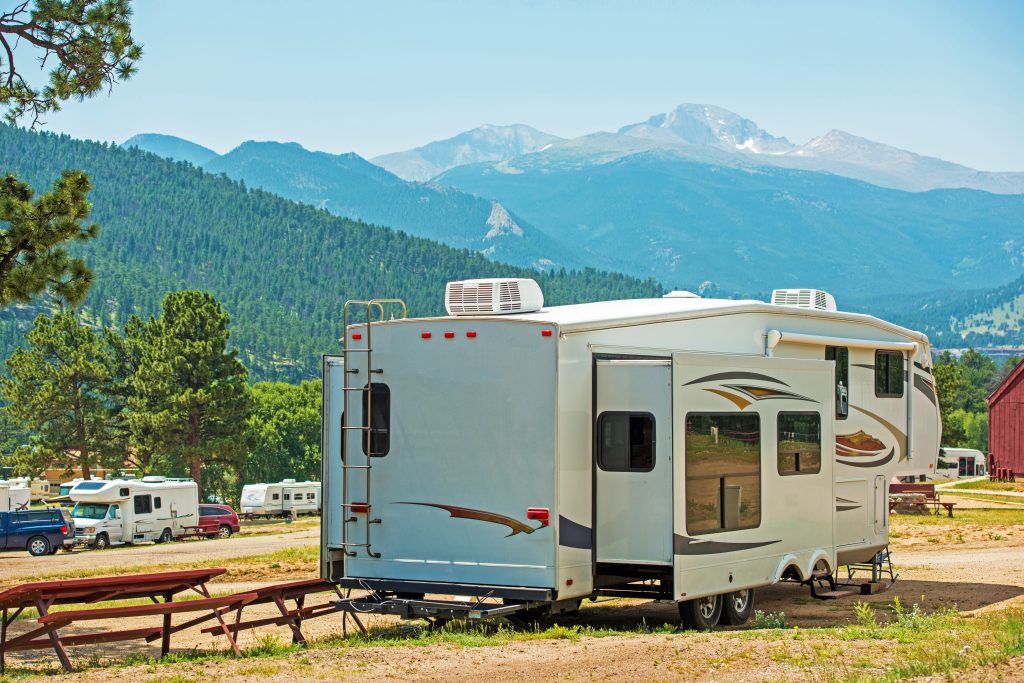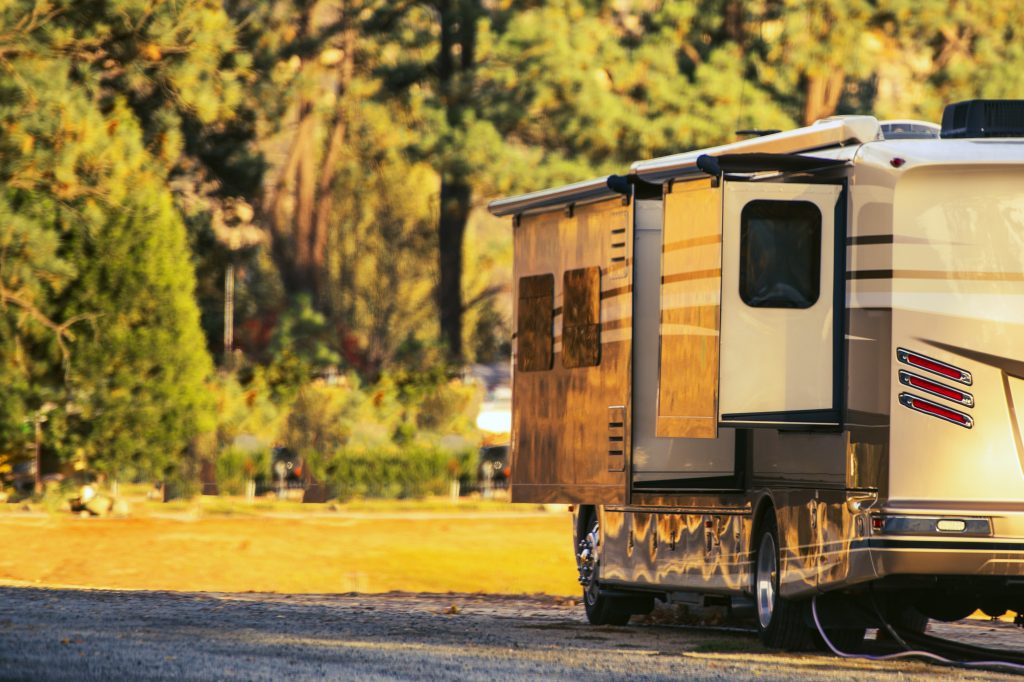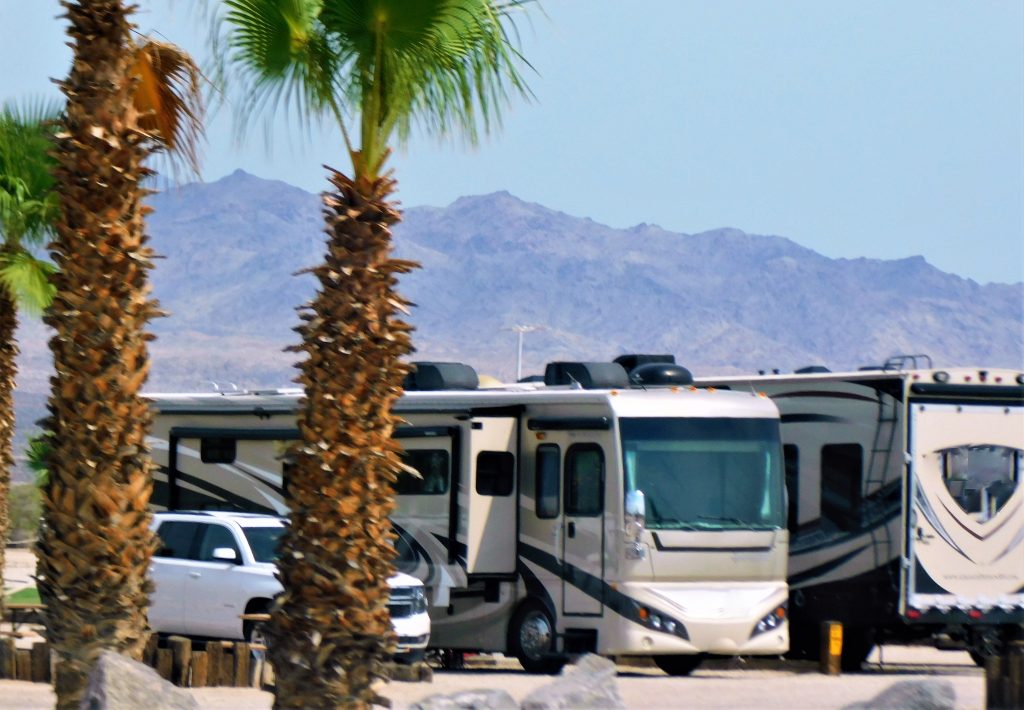The RV park and campground industry is experiencing rapid growth, and park owners must stay competitive by having a strong online presence. Today, a website isn’t just about providing information—it’s an essential tool for driving bookings, enhancing customer satisfaction, and boosting revenue. To help park owners succeed, here are the top 10 features every RV park website should include, backed by real-world examples and data demonstrating their impact.

- Online Reservation System
- Mobile-Optimized Design
- Dynamic Pricing
- High-Quality Photos and Virtual Tours
- Clear and Detailed Campground Information
- Integrated Reviews and Testimonials
- Interactive Map of the Campground
- Loyalty Programs and Special Offers
- Blog and Local Attraction Information
- Live Chat Support
- FAQ Section
- Why should I invest in an online reservation system?
- What if I don’t have the budget for a high-end website redesign?
- How do I know if mobile optimization is necessary for my RV park website?
- Can adding photos and virtual tours really increase my bookings?
- Is it worth offering dynamic pricing?
- Do I really need a blog?
- Will a loyalty program make a difference in my revenue?
Online Reservation System
The ability for potential visitors to book their spots online is essential in today’s digital landscape. Many customers prefer the convenience of booking their stays directly through a website, without the hassle of calling or emailing. A user-friendly reservation system ensures fewer abandoned bookings and more seamless transactions.
Why It’s Important:
- 66% of consumers prefer to book online according to a study by Phocuswright.
- An online reservation system allows real-time updates, reduces manual errors, and enables 24/7 booking access.
Example: KOA (Kampgrounds of America)
KOA has a sophisticated online booking system that lets users search for campgrounds by location, amenities, and availability, directly on their website. This feature has contributed significantly to their growth in bookings, providing a seamless experience that encourages impulse bookings.
Revenue Impact:
KOA experienced a 20% increase in reservations after integrating an online booking system into their platform. This ease of access encourages more immediate bookings, reducing the likelihood of prospective campers booking elsewhere.
Mobile-Optimized Design
More than half of all internet traffic comes from mobile devices, and potential campers are no exception. Ensuring that your website is mobile-friendly is crucial for capturing on-the-go bookings. A mobile-optimized design means that your site loads quickly, looks good, and functions well on all device types.
Why It’s Important:
- According to Google, 53% of mobile users abandon sites that take longer than 3 seconds to load.
- A mobile-friendly design enhances user experience and improves your SEO ranking.
Example: Yogi Bear’s Jellystone Park Camp-Resorts
Jellystone Park has invested heavily in its mobile site, which mirrors the desktop version in both speed and functionality. Their mobile site allows visitors to view available campsites, amenities, and book reservations without hassle.
Revenue Impact:
After Jellystone Park optimized their site for mobile devices, they saw a 15% increase in mobile bookings, which directly contributed to overall revenue growth.
Dynamic Pricing
Dynamic pricing, commonly used in the hotel and airline industries, adjusts rates based on demand, time of booking, and occupancy levels. This pricing strategy allows RV parks to maximize revenue during peak seasons while offering more competitive rates during slower periods.
Why It’s Important:
- Dynamic pricing can increase revenue by as much as 30%, according to studies from McKinsey.
- Encourages early bookings and increases occupancy during off-peak times.
Example: Sun Outdoors
Sun Outdoors, a leading RV resort and campground chain, employs dynamic pricing on their website. Depending on the season, availability, and booking window, rates fluctuate to match demand, ensuring maximum profitability.
Revenue Impact:
By using dynamic pricing, Sun Outdoors reported a 25% increase in revenue during peak seasons, while still maintaining high occupancy during off-peak periods.

High-Quality Photos and Virtual Tours
Visual content is a key driver for bookings in the travel industry. Potential campers want to see exactly what they’re getting before committing to a reservation. High-quality photos and virtual tours can significantly influence their decision.
Why It’s Important:
- Listings with high-quality photos get 94% more views, according to Airbnb data.
- Virtual tours can increase bookings by 30%, according to a study by Zillow.
Example: Ocean Lakes Family Campground
Ocean Lakes Family Campground uses professional photography and 360-degree virtual tours of their campsites, amenities, and surrounding area. This feature allows visitors to explore the property online, offering an immersive experience that builds trust and excitement.
Revenue Impact:
Ocean Lakes reported a 10% increase in bookings after adding virtual tours to their website, citing that visitors felt more confident in booking after experiencing the virtual preview.
Clear and Detailed Campground Information
Your website should be a one-stop shop for all the information visitors need about your park, including campsite descriptions, amenities, rules, and nearby attractions. This transparency not only answers potential questions but also reduces friction in the booking process.
Why It’s Important:
- A survey by HubSpot found that 70% of consumers expect websites to include comprehensive details on their offerings.
- Clear information helps reduce cancellations and increases customer satisfaction.
Example: Cedar Creek RV Park
Cedar Creek RV Park excels at providing comprehensive details about their park, including a breakdown of each campsite’s features, services, and pricing. Additionally, they list nearby attractions and recommendations, giving visitors a clear sense of what to expect.
Revenue Impact:
By providing clear, detailed information, Cedar Creek experienced a 12% reduction in booking inquiries, allowing staff to focus on customer service and operations.
Integrated Reviews and Testimonials
Customer reviews and testimonials serve as powerful social proof that can sway a potential camper’s decision. Integrating reviews directly onto your website builds trust and credibility.
Why It’s Important:
- 88% of consumers trust online reviews as much as personal recommendations, according to BrightLocal.
- Displaying reviews can increase conversion rates by 15-20%, according to PowerReviews.
Example: Flying Flags RV Resort & Campground
Flying Flags prominently features reviews and testimonials on their homepage, allowing visitors to read firsthand experiences from other campers. They use third-party review integration tools that keep the reviews unbiased and trustworthy.
Revenue Impact:
After adding user-generated reviews to their site, Flying Flags saw a 17% increase in conversion rates, as new visitors were more likely to trust the experiences of previous campers.
Interactive Map of the Campground
An interactive map gives visitors a better understanding of the layout of your park, including the location of campsites, amenities, and services. This can also enhance the online booking process by allowing visitors to select their preferred campsite based on proximity to specific features.
Why It’s Important:
- An interactive map can enhance user engagement by 30%, leading to higher satisfaction and increased bookings.
Example: Zion River Resort
Zion River Resort’s website features a detailed, interactive map where visitors can view the park layout, including campsite locations, restroom facilities, and recreational areas. Campers can even select their preferred site when booking.
Revenue Impact:
Zion River Resort reported a 20% increase in user engagement on their site after implementing the interactive map feature, which directly translated into more completed bookings.

Loyalty Programs and Special Offers
A loyalty program or special offers section incentivizes repeat visitors and helps build a long-term customer base. RV travelers often return to their favorite destinations, and offering a loyalty program encourages that return.
Why It’s Important:
- According to a study by Bond, 73% of consumers are more likely to recommend brands with good loyalty programs, while 56% stay loyal to brands with strong programs.
- Loyalty programs foster brand loyalty and increase the lifetime value of a customer.
Example: Encore RV Resorts
Encore RV Resorts offers a loyalty program through their website that rewards campers with points for each booking. These points can be redeemed for discounts on future stays, enticing visitors to return.
Revenue Impact:
Encore RV Resorts’ loyalty program led to a 30% increase in repeat bookings, which resulted in significant long-term revenue growth.
Blog and Local Attraction Information
A blog or resource section that highlights local attractions, seasonal events, and tips for RV travelers can be a great way to engage potential visitors and improve your SEO ranking. This section positions your RV park as an expert resource in the industry and encourages longer stays by showcasing what visitors can do nearby.
Why It’s Important:
- Blogging can increase site traffic by up to 55%, according to HubSpot.
- Highlighting local attractions encourages visitors to stay longer, increasing revenue per stay.
Example: Normandy Farms Family Camping Resort
Normandy Farms’ website features an active blog that highlights nearby attractions, campground events, and RV travel tips. This not only provides value to their visitors but also drives traffic to their website via search engines.
Revenue Impact:
Normandy Farms saw a 15% increase in site traffic after launching their blog, which directly contributed to a higher number of bookings from organic search traffic.
Live Chat Support
Providing instant answers through live chat is an effective way to increase conversions, especially for first-time visitors who may have specific questions before booking. Live chat can also serve as a support tool during a visitor’s stay, further enhancing their experience.
Why It’s Important:
- Live chat can increase conversions by as much as 20%, according to research by Forrester.
- Offering immediate responses improves customer satisfaction and reduces bounce rates.
Example: Riverbend RV Park
Riverbend RV Park offers live chat on their website, allowing visitors to ask questions about availability, amenities, or booking policies in real time. This feature has reduced phone inquiries, freeing up staff to focus on other tasks.
Revenue Impact:
Riverbend RV Park saw a 20% decrease in bounce rates and a corresponding increase in completed bookings after implementing live chat, as potential visitors could get their questions answered immediately.

FAQ Section
Why should I invest in an online reservation system?
Investing in an online reservation system provides 24/7 booking access, reduces errors, and significantly increases the chances of securing a booking since most travelers prefer to book online. Additionally, an online system can reduce administrative work, allowing you to focus more on your park’s operations.
What if I don’t have the budget for a high-end website redesign?
There are many scalable solutions, such as integrating basic online booking systems and optimizing for mobile devices, which don’t require a full redesign. Start with the most impactful features (like booking systems and mobile optimization) and expand as your budget allows.
How do I know if mobile optimization is necessary for my RV park website?
Check your website analytics. If more than half of your traffic comes from mobile devices (which is common), a mobile-optimized design is crucial. Additionally, optimizing for mobile improves your SEO ranking, making it easier for travelers to find you.
Can adding photos and virtual tours really increase my bookings?
Yes, studies show that high-quality visuals can boost engagement and conversions significantly. Virtual tours, in particular, offer an immersive experience that builds trust and excitement, making potential campers more likely to commit to a booking.
Is it worth offering dynamic pricing?
Dynamic pricing helps you maximize revenue by adjusting rates based on demand. While there may be a learning curve, the long-term gains in revenue can far outweigh the initial investment.
Do I really need a blog?
While not essential, a blog can help boost your site’s SEO ranking, drive more traffic, and provide valuable information to potential visitors. A well-maintained blog can position your park as an expert destination and keep your site content fresh.
Will a loyalty program make a difference in my revenue?
Loyalty programs encourage repeat bookings, which is crucial for long-term growth. If many of your visitors are repeat customers, implementing a loyalty program can foster even more returns and build brand loyalty.
Integrating these 10 features into your RV park’s website can significantly improve the user experience, increase bookings, and boost your overall revenue. Whether you’re starting from scratch or enhancing an existing site, focusing on these elements will position your park for long-term success.
